The Maryland-National Capital Region Emergency Response System (MDERS) continuously engages with regional partners to expand the Public Access Trauma Care (PATC) program throughout Montgomery and Prince George’s Counties. The PATC capability seeks to empower bystanders with the requisite medical equipment, knowledge, skills, and abilities to treat life threatening trauma prior to the arrival of first responders. To achieve this goal, MDERS coordinates the procurement and installation of readily accessible PATC kits, in a similar fashion to fire extinguishers or automated external defibrillators (AEDs), throughout government buildings, public schools, or other heavily populated facilities.
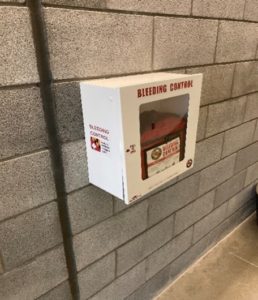 MDERS staff coordinated with officials from Montgomery College to strategize the expansion of the PATC capability into their facilities. As part of an expedited planning process, MDERS staff and Montgomery College officials walked through the Rockville campus to identify potential locations for the PATC kits and complete the necessary Environmental and Historic Preservation (EHP) paperwork. Montgomery College officials then repeated this process at their Germantown campus, Takoma Park campus, and Central Services facility.
MDERS staff coordinated with officials from Montgomery College to strategize the expansion of the PATC capability into their facilities. As part of an expedited planning process, MDERS staff and Montgomery College officials walked through the Rockville campus to identify potential locations for the PATC kits and complete the necessary Environmental and Historic Preservation (EHP) paperwork. Montgomery College officials then repeated this process at their Germantown campus, Takoma Park campus, and Central Services facility.
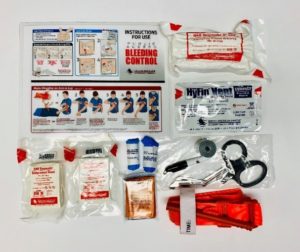 Upon completion of all the necessary EHP documentation and paperwork, MDERS supplied Montgomery College with PATC bags and cabinets, which Montgomery College promptly installed in 90 locations across their facilities. Each of these bags stores a patient litter and five individual PATC kits. The individual kits contain a tourniquet, emergency compression dressing, compressed gauze, medical gloves, trauma shears, two chest seals, a survival blanket, a permanent marker, a mini duct tape roll, and a just-in-time instruction card. The expansion of the PATC capability throughout Montgomery College campuses provides an invaluable medical resource for prompt care of an injured victim.
Upon completion of all the necessary EHP documentation and paperwork, MDERS supplied Montgomery College with PATC bags and cabinets, which Montgomery College promptly installed in 90 locations across their facilities. Each of these bags stores a patient litter and five individual PATC kits. The individual kits contain a tourniquet, emergency compression dressing, compressed gauze, medical gloves, trauma shears, two chest seals, a survival blanket, a permanent marker, a mini duct tape roll, and a just-in-time instruction card. The expansion of the PATC capability throughout Montgomery College campuses provides an invaluable medical resource for prompt care of an injured victim.
MDERS staff recently met with Prince George’s Community College to discuss how the program could benefit their campus and is continuing to conduct targeted outreach to higher education institutions in the Maryland-National Capital Region.
For more information on the Public Access Trauma Care Program, or other emergency response capabilities, please email mders@maryland.gov.
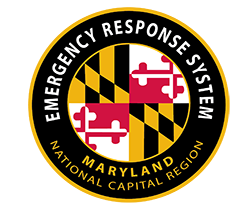
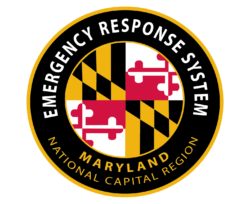
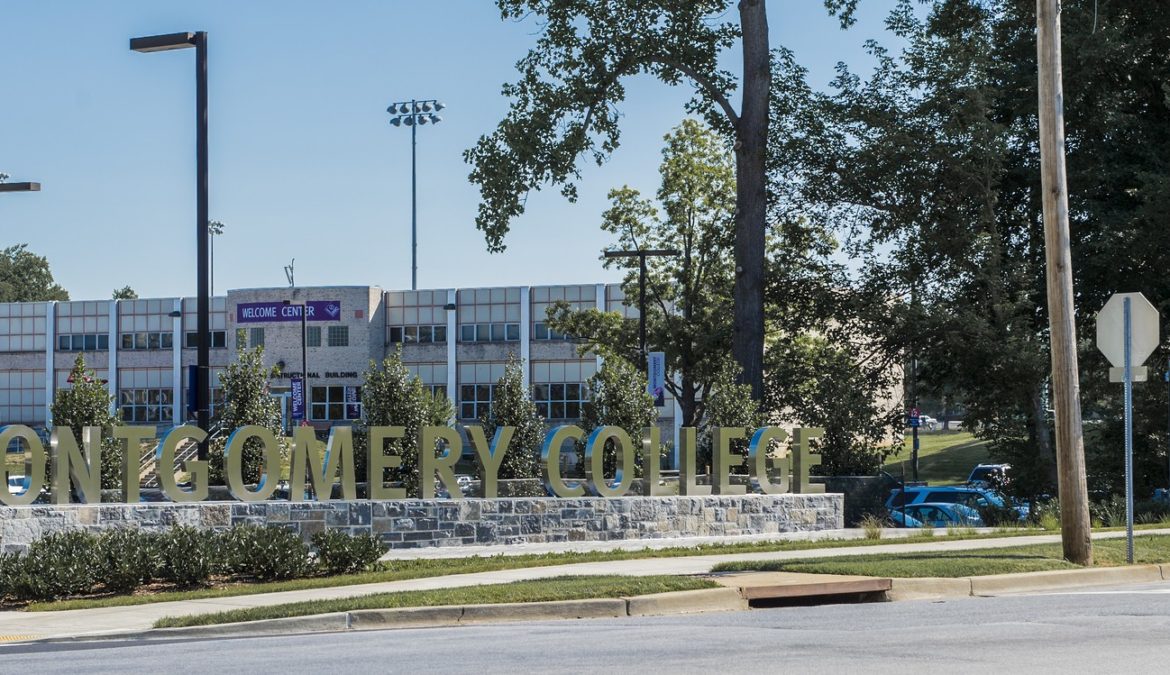
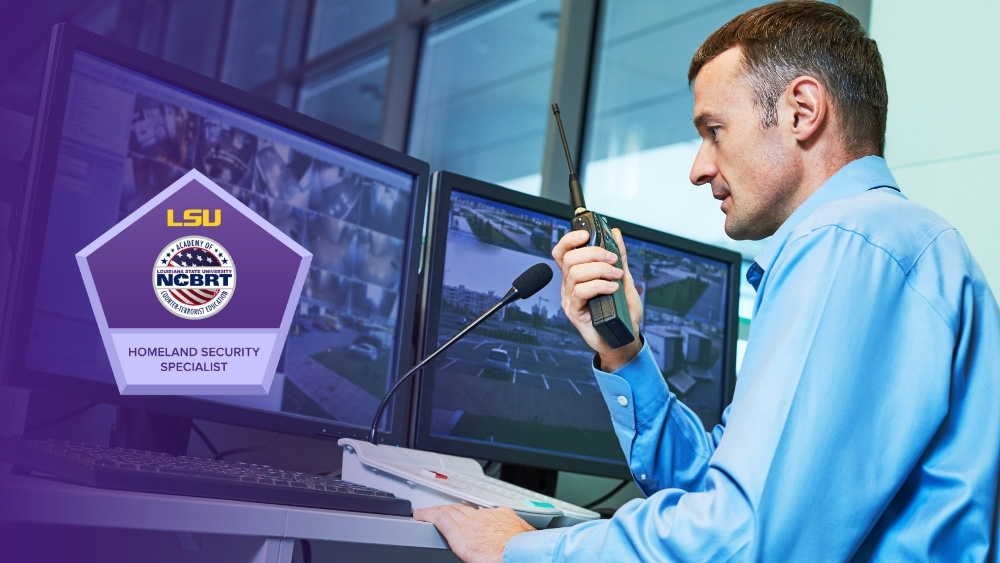
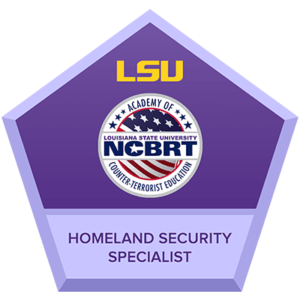 In March 2022, nine members of the Maryland-National Capital Region Emergency Response System (MDERS) stakeholder community began Louisiana State University’s (LSU) 10-week Homeland Security Specialist MicroCert program. Participants included representatives from several stakeholder agencies: the Prince George’s County Police Department (PGPD), Prince George’s County Fire Department (PGFD), Montgomery County Office of Emergency Management and Homeland Security (OEMHS), and MDERS.
In March 2022, nine members of the Maryland-National Capital Region Emergency Response System (MDERS) stakeholder community began Louisiana State University’s (LSU) 10-week Homeland Security Specialist MicroCert program. Participants included representatives from several stakeholder agencies: the Prince George’s County Police Department (PGPD), Prince George’s County Fire Department (PGFD), Montgomery County Office of Emergency Management and Homeland Security (OEMHS), and MDERS.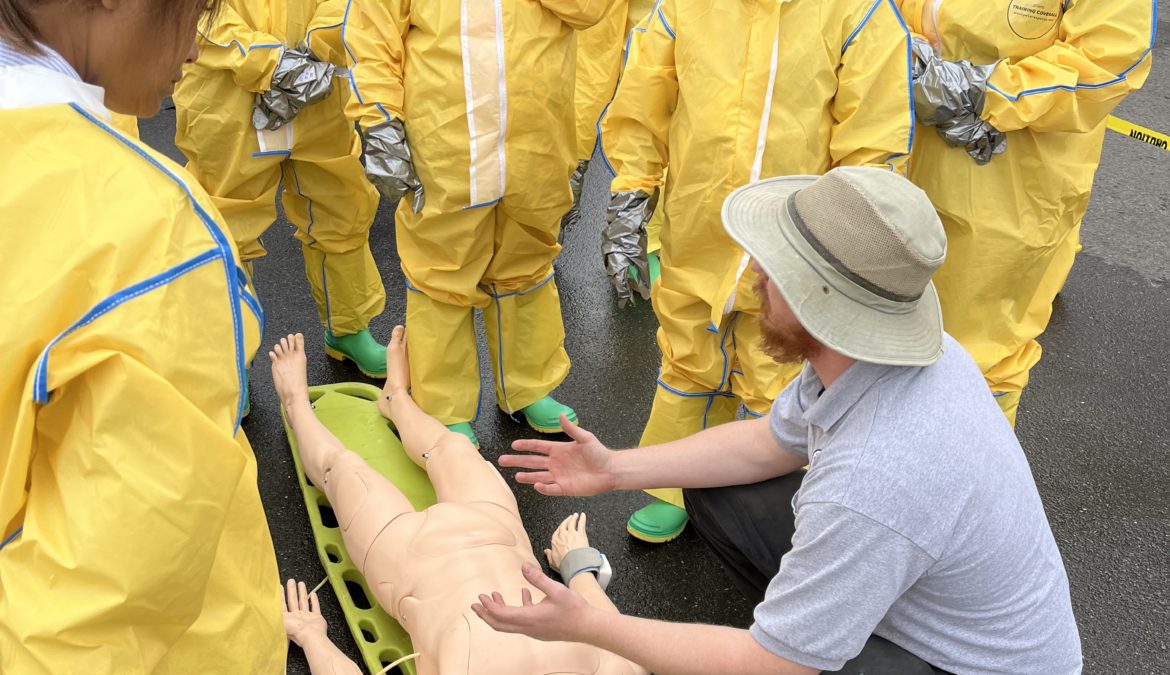
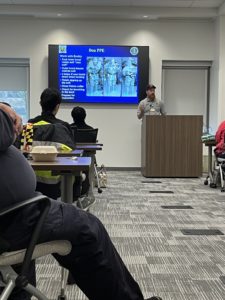 To prepare for a potential response to individuals exposed to unknown hazardous substances, seven hospitals within the Maryland-National Capital Region participated in a series of First Receiver Operations Training (FROT) course offerings throughout the Spring of 2022. These two-day trainings educated first receivers on the knowledge, skills, and abilities to recognize a hazardous material exposure, triage patients, initiate field treatment, conduct decontamination, and transition patients to definitive care.
To prepare for a potential response to individuals exposed to unknown hazardous substances, seven hospitals within the Maryland-National Capital Region participated in a series of First Receiver Operations Training (FROT) course offerings throughout the Spring of 2022. These two-day trainings educated first receivers on the knowledge, skills, and abilities to recognize a hazardous material exposure, triage patients, initiate field treatment, conduct decontamination, and transition patients to definitive care.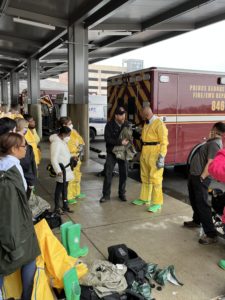 During the second day of training, students received hands-on instruction and demonstrated their ability to properly configure a field decontamination site, including hot, warm, and cold zones, while wearing full PPE. Each of these decontamination sites includes an inflatable shelter with running water to augment permanent infrastructure inside healthcare facilities. Students practiced implementing triage methodologies, deploying equipment, and facilitating both ambulatory and non-ambulatory patient decontamination practices.
During the second day of training, students received hands-on instruction and demonstrated their ability to properly configure a field decontamination site, including hot, warm, and cold zones, while wearing full PPE. Each of these decontamination sites includes an inflatable shelter with running water to augment permanent infrastructure inside healthcare facilities. Students practiced implementing triage methodologies, deploying equipment, and facilitating both ambulatory and non-ambulatory patient decontamination practices.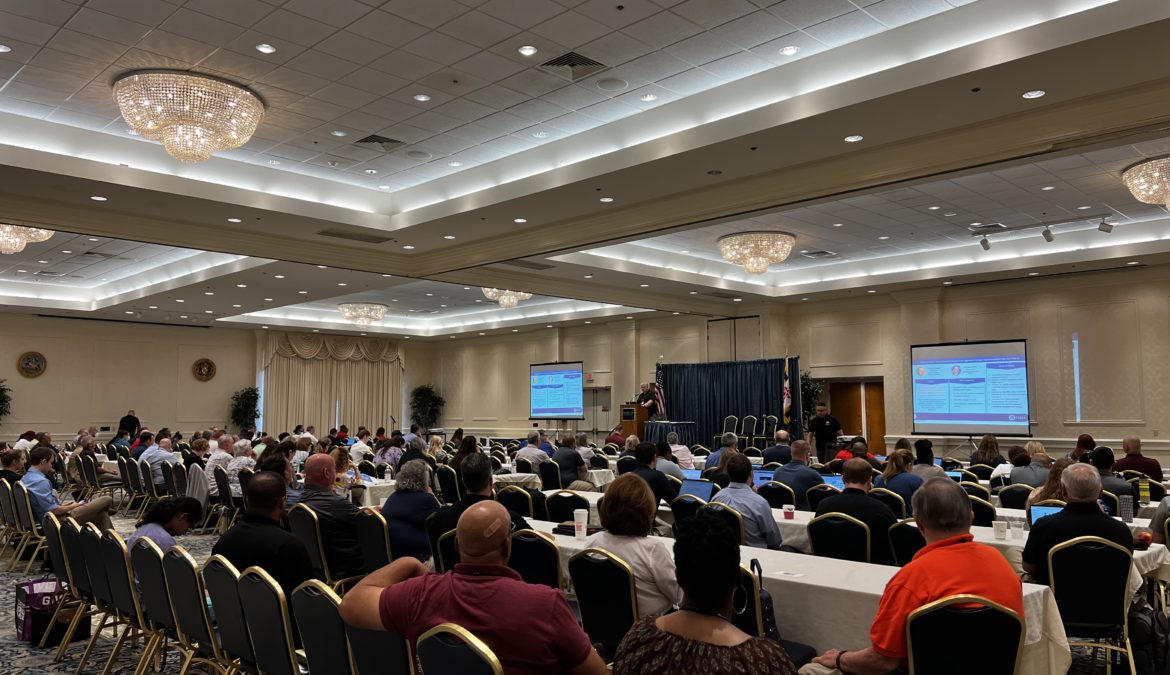
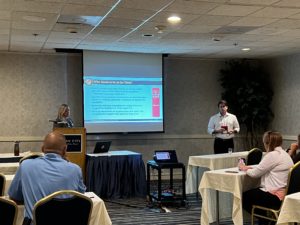 Director Luke Hodgson, Planning & Organization Program Manager Samuel Ascunce, and Finance & Logistics Program Manager Lauren Collins outlined to attendees how MDERS has established a capability development process which builds, implements, and sustains critical response capabilities in Prince George’s and Montgomery Counties. At the core of the capability development process is the POETEE model, which consists of Planning, Organization, Equipment, Training, Exercise, and Evaluation. MDERS continues to successfully apply and adapt the capability development process across the Maryland-National Capital Region response enterprise to better strengthen stakeholders’ abilities to respond to a multitude of planned and unplanned operations. Participants gained the knowledge, tools, and best practices for building and/or enhancing capabilities within their jurisdictions.
Director Luke Hodgson, Planning & Organization Program Manager Samuel Ascunce, and Finance & Logistics Program Manager Lauren Collins outlined to attendees how MDERS has established a capability development process which builds, implements, and sustains critical response capabilities in Prince George’s and Montgomery Counties. At the core of the capability development process is the POETEE model, which consists of Planning, Organization, Equipment, Training, Exercise, and Evaluation. MDERS continues to successfully apply and adapt the capability development process across the Maryland-National Capital Region response enterprise to better strengthen stakeholders’ abilities to respond to a multitude of planned and unplanned operations. Participants gained the knowledge, tools, and best practices for building and/or enhancing capabilities within their jurisdictions.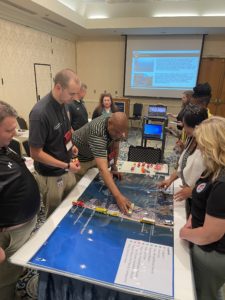 Training and Exercise Specialist Hannah Thomas and Lt. John Berry from the City of Rockville Police Department facilitated a discussion with attendees on MDERS’s Tabletop in a Box program. This systematic, scalable, and economical approach for developing critical capabilities through readily deployable exercises, has been implemented throughout the Maryland-National Capital Region across a multitude of law enforcement, fire, rescue, and emergency medical services (EMS), healthcare, and public health organizations. Conference attendees participated in a Tabletop in a Box exercise during the conference, responding to a severe weather emergency in the Ocean City area leading up to a holiday weekend.
Training and Exercise Specialist Hannah Thomas and Lt. John Berry from the City of Rockville Police Department facilitated a discussion with attendees on MDERS’s Tabletop in a Box program. This systematic, scalable, and economical approach for developing critical capabilities through readily deployable exercises, has been implemented throughout the Maryland-National Capital Region across a multitude of law enforcement, fire, rescue, and emergency medical services (EMS), healthcare, and public health organizations. Conference attendees participated in a Tabletop in a Box exercise during the conference, responding to a severe weather emergency in the Ocean City area leading up to a holiday weekend. Training and Exercise Specialist Hannah Thomas, Chief Doug Hinkle from the Montgomery County Fire and Rescue Service (MCFRS), Mitch Dinowitz from the Montgomery County Office of Emergency Management and Homeland Security (OEMHS), and Lt. Victor “Tony” Galladora from the Montgomery County Police Department (MCPD) led a discussion with symposium attendees on the development of Montgomery County’s small-unmanned aerial systems (sUAS) capability over the past four years. The program, which is now fully integrated within MCFRS, MCOEMHS, and MCPD, supports a variety of emergency response needs, including advanced situational awareness and information sharing. The panel of leaders from Montgomery County provided detailed examples on how the County deploys and benefits from the capability on an ongoing basis as part of its emergency response capabilities.
Training and Exercise Specialist Hannah Thomas, Chief Doug Hinkle from the Montgomery County Fire and Rescue Service (MCFRS), Mitch Dinowitz from the Montgomery County Office of Emergency Management and Homeland Security (OEMHS), and Lt. Victor “Tony” Galladora from the Montgomery County Police Department (MCPD) led a discussion with symposium attendees on the development of Montgomery County’s small-unmanned aerial systems (sUAS) capability over the past four years. The program, which is now fully integrated within MCFRS, MCOEMHS, and MCPD, supports a variety of emergency response needs, including advanced situational awareness and information sharing. The panel of leaders from Montgomery County provided detailed examples on how the County deploys and benefits from the capability on an ongoing basis as part of its emergency response capabilities.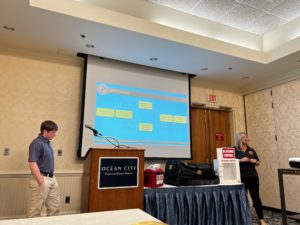 Finance & Logistics Program Manager Lauren Collins and Emergency Response Planning Specialist Peter McCullough provided attendees with a deep-dive look at the origins, implementation, and expansion of the Public Access Trauma Care (PATC) in Prince George’s and Montgomery Counties. Designed to educate, equip, and empower bystanders to provide life-saving medical aid in the critical minutes before responders arrive on-scene, the PATC program has been deployed across the Prince George’s and Montgomery County public school systems. Participants learned about the step-by-step process through which MDERS developed and deployed the PATC program, as well as how the program has already helped save lives in the Maryland-National Capital Region.
Finance & Logistics Program Manager Lauren Collins and Emergency Response Planning Specialist Peter McCullough provided attendees with a deep-dive look at the origins, implementation, and expansion of the Public Access Trauma Care (PATC) in Prince George’s and Montgomery Counties. Designed to educate, equip, and empower bystanders to provide life-saving medical aid in the critical minutes before responders arrive on-scene, the PATC program has been deployed across the Prince George’s and Montgomery County public school systems. Participants learned about the step-by-step process through which MDERS developed and deployed the PATC program, as well as how the program has already helped save lives in the Maryland-National Capital Region.